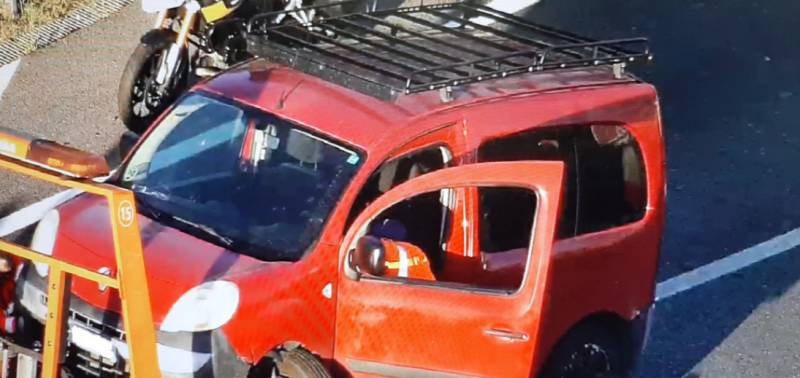article_detail
Date Published: 07/06/2023
Avoid these car maintenance fines in the latest DGT crackdown in Spain
All this week, the traffic authorities in Spain will be randomly checking the upkeep of vehicles

When it comes to cars in Spain, oldies are most certainly seen as goodies, and the average age of vehicles circulating on Spanish roads is almost 14 years. But according to the DGT, the age of motors is directly related to safety, and your risk of dying or being seriously injured in an accident is doubled in cars that are between 10 and 15 years old, compared to vehicles less than five years old.
As our cars get older, regular services and maintenance become more and more important, and with 70% of passenger vehicles pushing 12 this summer, the General Directorate of Traffic (DGT) has launched a new campaign that will run until June 11 to check the state of the motors on the roads.
At random check points up and down the country, traffic officers will be stopping cars to check for up-to-date ITVs (equivalent of MOTs in the UK) as well as analysing tyres, brakes, lights and signals.
Fines for poor vehicle maintenance
The need for vehicle maintenance is, of course, proportional to its age, but aside from this factor, it’s important to bear in mind that a car with brake, suspension, steering or tyre problems is more likely to be involved in a traffic accident.
As well as taking your life in your hands, failing to look after your car properly will make you an easy target for the DGT, whose officers won’t hesitate to slap drivers with pricey fines. This week, cops will be especially on the lookout for broken or cracked windows and blown bulbs, which carry 200-euro penalties.
The same amount will be charged for driving on worn tyres, while circulating with an out-of-date ITV sticker could cost motorists as much as 500 euros.
Things to check before hitting the road
According to the DGT, drivers of older cars should pay special attention to the following:
- Steering: Get your vehicle checked out if you notice play, noise, vibration or unusual stiffness when turning.
- Brakes: Have the pads, discs and brake fluid level checked.
- Suspension: Its deterioration is imperceptible, but stability and braking capacity depend on it.
- Tyres: Check tread depth (1.6mm minimum), deformation, irregular wear and pressure.
- Lights: Check both the indicators and the lighting - they must be in perfect condition and well regulated since their purpose is not only to see, but also to be seen.
- Battery: If your car has any problems starting, check if the battery needs to be replaced.
- Levels and filters: Check the level of the brake, windshield wiper and oil fluid, as well as the tension of the belts and the condition of the oil, air and pollen filters.
- Air-conditioning: If it’s not cooling properly or making strange noises, have the air-con system checked out. In addition to providing comfort, it reduces fatigue, which has an impact on safety.
- Windows and wipers: Check the condition of the windows and wiper blades. Drivers must ensure that the windshield isn’t damaged in any way, since it’s a fundamental part of the structural resistance of the vehicle and in the effectiveness of the airbag.
- Injection: In case of increases in fuel consumption, jerks when starting or running, have the injection system checked (carburation in old cars).
Find all the latest motoring and travel news here or join our Driving in Spain Facebook group for regular updates
Image: DGT
Loading
Sign up for the Spanish News Today Editors Roundup Weekly Bulletin and get an email with all the week’s news straight to your inbox
Special offer: Subscribe now for 25% off (36.95 euros for 48 Bulletins)
OR
you can sign up to our FREE weekly roundup!
Read some of our recent bulletins:
Discount Special Offer subscription:
36.95€ for 48 Editor’s Weekly News Roundup bulletins!
Please CLICK THE BUTTON to subscribe.
(List price 3 months 12 Bulletins)
Read more stories from around Spain:
Contact Spanish News Today: Editorial 966 260 896 /
Office 968 018 268



















